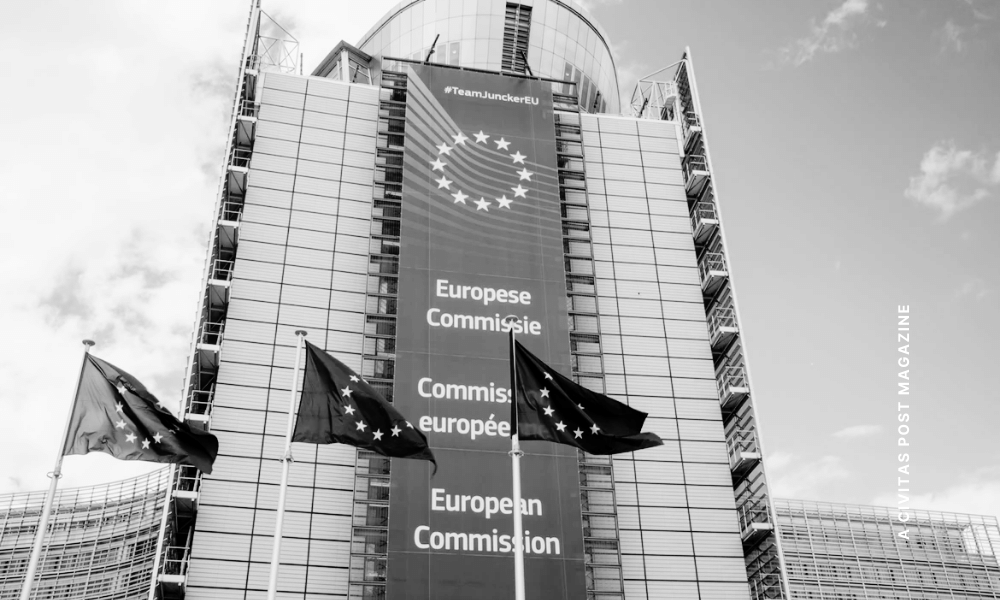Compliance for RCBI firms will need to be fortified as the European Commission has proposed regulatory changes. These changes will impact the investment migration and all financial services firms. We explore the EU-wide trend to create a unified approach against AML, counter terrorism financing and tax evasion. Specifically, how it will impact RCBI firms and how they onboard new clients.
Latest regulatory RCBI Compliance developments
The European Commission (“EC”) has been implementing regulatory changes that will impact financial services and investment migration firms. In May 2021 the European Commission issued an Action Plan to prevent money laundering (“AML”) and counter terrorist financing (“CTF”).
The latest European Commision’s AMLCFT package included:
- The regulations governing the establishment of an EU-level anti-money laundering authority –this new EU body is to be called “AMLA”.
- An EU wide ‘playbook’ that harmonizes AML/CTF compliance across the EU.
- The improved traceability of crypto-asset transfers, the prohibition of anonymous crypto-asset wallets and the obligation for all crypto-asset service providers to conduct thorough due diligence on their customers.
- A new AML Directive – AMLD6 which will enhance the AML mechanisms in place already and set new minimum standards for AML regulators and financial intelligence units under the guidance of the new EU body AMLA.
Compliance – A European Union-Wide Approach
- In June 2021 the European Court of Auditors issued a report that highlighted the lack of coordination between EU institutions and their failure to effectively prevent money laundering. These are the key EU institutions at the heart of Europe’s AML structure:
- European Commission – tasked with developing policy and guidelines on AML/CTF
- European Banking Authority – that analyses EU law breaches in the banking sector and sets AML/CTF standards, though the latter duty is expected to transferred to the new AMLA body
- European Central Bank – responsible for supervising banking intuitions, assessing AML/CTF risks and sharing pertinent AML/CTF information EU wide.
The European Court of Auditors opined that none of these bodies were properly carrying out their mandates cohesively. To remedy this, it is expected that AMLA will unify the AML/CTF risk monitoring and supervision across the EU.
Notably, AMLA will have a central database that will collate financial and banking data. It will also share banking data with other national financial bodies. AMLA will indirectly supervise other financial bodie bvs as well as investigate and sanction entities who do not comply.
As cryptocurrency adoption takes off full steam, the EU has responded by fortifying its oversight and regulation of crypto-assets union-wide. To date, only a few types of crypto-asset service providers are included in the scope of EU AML/CTF rules.
In addition, the proposed AML Directive 6 will further align with the Financial Action Task Force (FATF) – an intergovernmental organization founded in 1989 by the G7 to develop policies to combat money laundering. The EU will have a black list and a grey list for countries that Europe believes pose an AML risk – the grey list will reflect the FATF list.
Why are these compliance changes important for RCBI firms?
Firstly, this proposed regulation expands the scope of obligated entities that will be subject to this AML/CTF ‘playbook’. The entities now include:
- credit institutions
- financial institutions
- professional service providers (tax, accounting)
- notaries/legal service providers (specifically involved in financial or real estate transactions)
- trust/fiduciary service providers
- estate agents
- precious asset traders
- gambling entities
- crypto-asset service providers
- crowdfunding platforms
- arts traders
- mortgage and consumer credit creditors and intermediaries
- investment migration entities that mediate third country nationals’ investments in exchange for residency rights in Europe
The draft regulations also specify the customer due diligence and beneficial ownership rules that entities must comply with when onboarding new clients.
This means that investment migration (RCBI) firms in Europe which do not have a robust customer due diligence process or an internal/outsourced compliance function that meets these standards could (inadvertently) fall in breach of these new regulations.
There are also provisions in the draft regulation to connect national registers of bank accounts so law enforcement bodies can access information on the banking registries across the European Union and facilitate financial investigations. The crypto-asset sector changes may also impact Residency and Citizenship by Investment (“RCBI”) firms that wish to onboard crypto-clients, a growing target client sector for alternative residency and citizenship programs.
In regards to citizenship by investment (“CBI”), the European Commission reiterated its position vis-à-vis citizenship programs. It stipulated that it will not regulate citizenship programs as, in essence, their existence is not supported:
“{investor citizenship schemes} do not comply with the principle of sincere cooperation (Article 4(3) TEU) and the fundamental status of citizenship of the Union as laid down in the Treaties (Article 20 TFEU).”
Read more: EC may suspend Vanuatu Passport Visa Waiver
The Domino Effect of CBI Scandals on Compliance Requirements
Investor citizenship schemes in Europe have been under notable pressure in recent years as they’ve soared in popularity. As the industry boomed, it drew more attention from supervisory bodies – even more so as scandals emerged and the significance of compliance was underlined.
Cyprus’ now defunct CBI and Malta’s Individual Investor Program – the Malta IIP were both put under close watch and either closed or in Malta’s case revamped to the Malta Exceptional Investor Naturalization “MEIN” program.
Last year, the notorious Cyprus Citizenship by Investment program that used a fake criminal potential client to shed light on the corruption and oversights by high profile individuals in the local market.
That scandal resulted in the contentious investment migration programmer’s imminent death. It also set off a socio-political bomb in Cyprus. Whilst in Europe it served government and regulatory opponents of “golden passport schemes” the perfect ammunition, on a golden platter. [pun intended]
In the final hours before the cut-off date for the Cypriot programme – 1st November 2020 – approximately 1,417 last-minute applications for citizenship were submitted. These still needed to be assessed and it wasn’t until August 2021 that they were fully reviewed.
This June 2021 the EU Commission issued a statement highlighting its grave concern for citizenship programmes in Europe and voiced their disdain for Cyprus’ ongoing review of applications even after the CBI programme was closed.
“While Cyprus and Malta remain responsible to decide who may become Cypriot and Maltese, the Court of Justice has made it clear on multiple occasions that rules on the acquisition of the nationality of a member state must do so having “due regard to EU law”.
The Ongoing Sovereignty Debate
The Investment Migration Council (“IMC”) is a global association of industry players in the RCBI sphere that liaises with governments, international organisations and external stakeholders on behalf of the industry. In response to the EC’s latest AML/CTF proposals the IMC voiced their opinion on their approach to investor citizenship programmes:
“Deciding, however, not to propose regulating of citizenship by investment simply on an assumption that such programmes are incompatible with EU law (which most leading EU law experts believe they are not), is prejudicative and amounts to a missed opportunity if not duty of the EU to bring regulation in a field where this is just as much required as the other professional activities that are now proposed to be added under AML/CFT regulatory framework.”
Whilst there is an ardent debate on the extent of rights or power the European Commission even has to dictate under what terms sovereign Member States grant citizenship or residency – there is no wavering in the European Commission’s position.
Just this week, the EC President stressed that it has concerns with citizenship by investment programs and stated:
“In our bilateral discussions we have been discussing the subject of the golden passports and that it is of utmost importance to stop that procedure because we should not forget that the golden passports potentially enable the person to have access to 27 member states in the European Union.”
Nonetheless, as reported in Times of Malta Alex Muscat, Parliamentary Secretary for Citizenship retorted:
“We continue to believe that citizenship is a national competence decided by each individual country.”
When will these regulatory compliance changes occur?
Whichever side of the fence one is on, it is undeniable that there is a veritable transition towards more cohesive EU-wide and even global policies to curb AML, CTF and international tax evasion.
Proof of the latter was the 130 countries that joined the new OECD framework. The first pillar relates to the more equitable taxation of global digital/tech MNEs. The second pillar relates to setting a minimum corporate income tax.
How the pandemic has fueled these policy trends is subject of another analysis but there is no denying the significance of the impending changes in the regulatory landscape in Europe and beyond.
In terms of due diligence and AML/CTF compliance the European Commission has estimated that by 1 January 2023 some aspects of AMLA will apply and by 1st January 2024 they will be fully in place.
AMLD6 is also estimated to be in-effect after it has been transposed to national law by the end of 2025 allowing all relevant entities, including RCBI firms to adapt to adapt to compliance requirements.
It is important to note that the UK is also reviewing its AML/CTF framework to ensure it is in alignment with the EU and congruent with the fast-evolving digital financial environment of today. It is anticipated that before next summer the UK will also issue reports on its findings and proposals in this regard.









